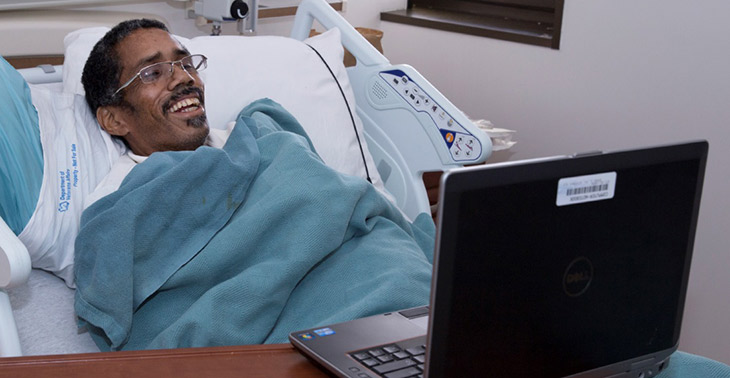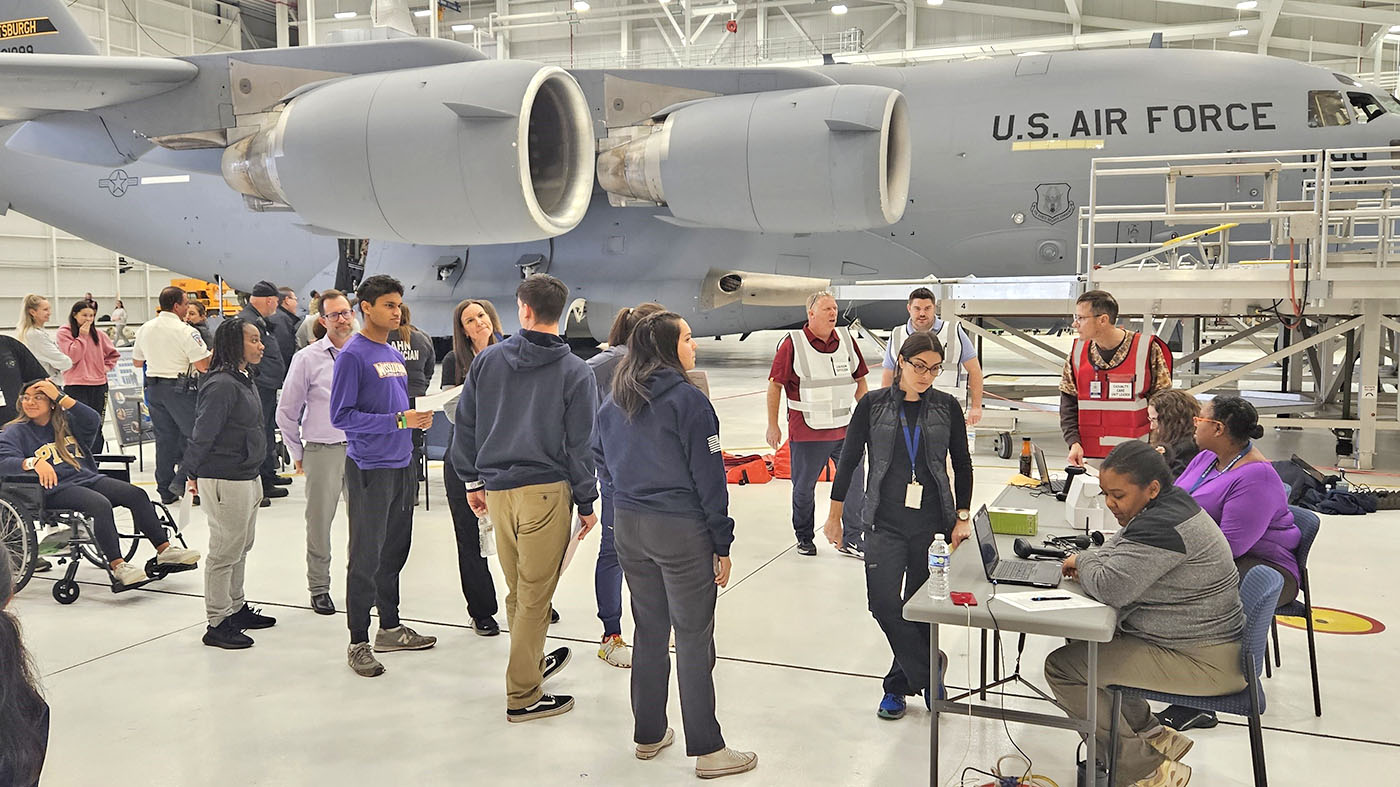“This means everything … everything to me. I’m thankful to all the staff for allowing me to connect with so many family members.” — Derrick Stewart, U.S. Army Veteran
Derrick Stewart’s last wish while in VA hospice care in San Antonio was to speak with members of his family. However, due to his declining health, and the distance between his family members, VA staff knew they would need to find a different avenue other than travel to make this happen. So they turned to telehealth technology to help the Army Veteran reconnect with his family — including his mother, siblings, nieces and nephews.
To make Stewart’s wish come true, South Texas Veterans Affairs Health Care System staff coordinated with seven VA facilities in New Mexico, Texas, California and Missouri. The telehealth staff used a VA laptop equipped with video technology at Stewart’s bedside, and a variety of videoconferencing devices at these locations where his family joined in.
“At first, the Veteran’s brother, Kevin, wasn’t too sure about the videoconference but started warming up to the idea after speaking with him,” said Tammy Walker, the telehealth clinical technician in Redding, Calif. “Before the conference, he shared stories about him and his brothers, how they haven’t seen each other in many years. Once the videoconference started, you could see the excitement in all of their faces. They were laughing and cracking jokes at each other. They spent a while reminiscing on the good times they all had together.”
“Words cannot express my experience with the Stewarts here in Modesto,” said Samara Sory, the telehealth clinical technician in Modesto, Calif. “The light in his eyes made me tear up. He was so happy and amazed to see his family. It was like he got a second wind. After the encounter the Stewarts told me that ‘This has meant so much to us. It’s just priceless.’ I always say telehealth is changing lives one Veteran at a time, and this is a prime example.”
The Palliative Care Team at the South Texas Veterans Affairs Health Care System strives to relieve suffering for Veterans at their end-of-life through comfort measures. Their team’s primary goal is to facilitate and fulfill Veterans’ dying wishes. The hope for Stewart was that through this effort he could share in meaningful and intimate communication with significant family members, thus positively impacting his end-of-life experience, bereavement issues and overall quality of life.
“I cannot think of a better example of ICARE — integrity, commitment, advocacy, respect and excellence — and full execution of the ‘virtual team’ model,” said Ellen Edmonson, deputy chief consultant for telehealth services in VA. “The staff worked diligently to be Veteran-centric by maintaining Mr. Stewart’s dignity and respect while providing high quality and compassionate care.”
Article by Yolanda Kyle and Nenette Madla. VA photo by Lupe Hernandez, South Texas VA Health Care System.
Topics in this story
More Stories
Air Force Veteran Shireta Jones overcomes obstacles with support from VA and adaptive devices to continue her passion for pickleball.
Pittsburgh VA and its partners practice relocating hospitalized patients during disasters and public health emergencies.
VA and Veterans Yoga Project are working together to make more Veterans aware of the benefits of yoga while offering more classes.







why can:t you talk to some one in reginal office
I was so pleased how the VA handled his case!! It made him laugh and fulfilled his dream of being a Great human being and giving him a chance to be a good man. It give him dignity and Great smiles to him and his friends and family, God Bless him and his friends and family, Thank You VA for this!!
excellent report. Congratulations.